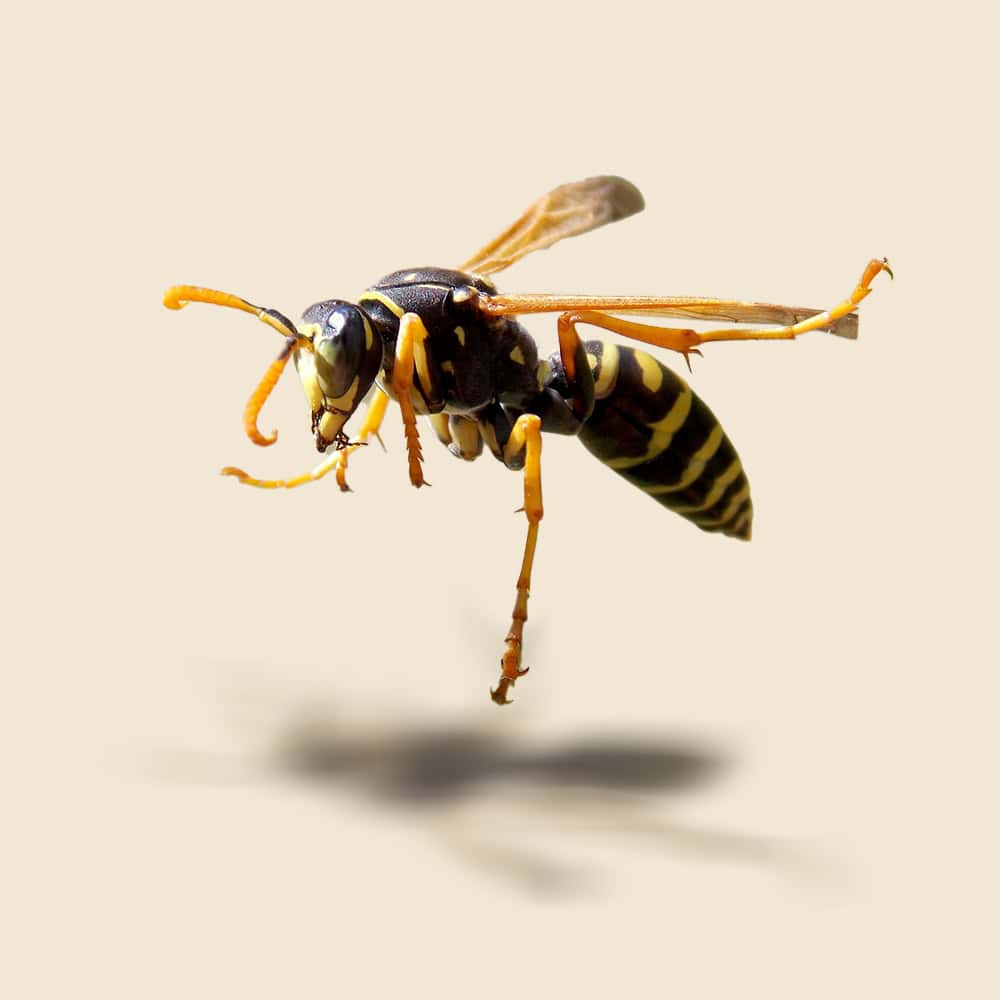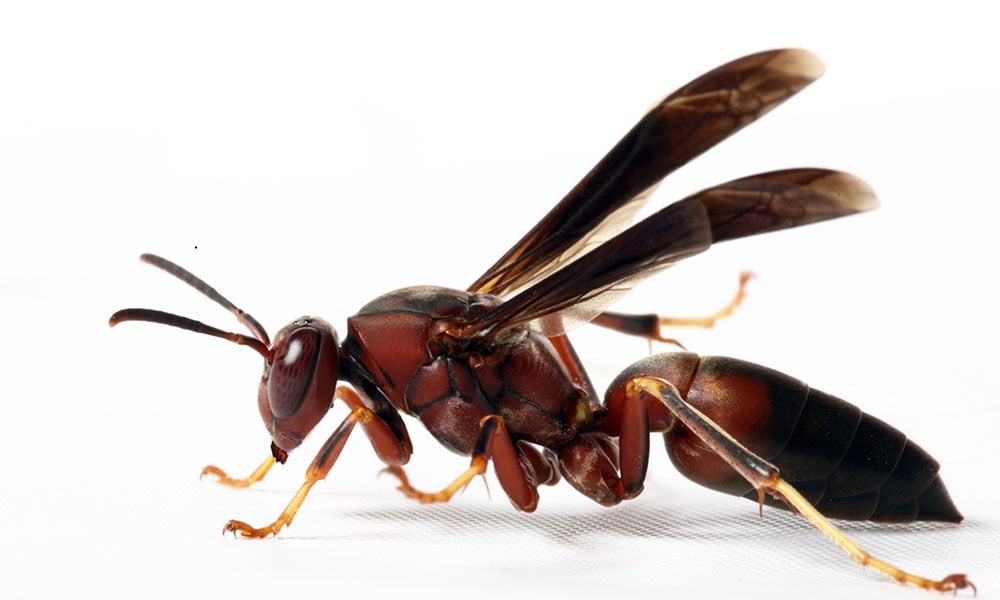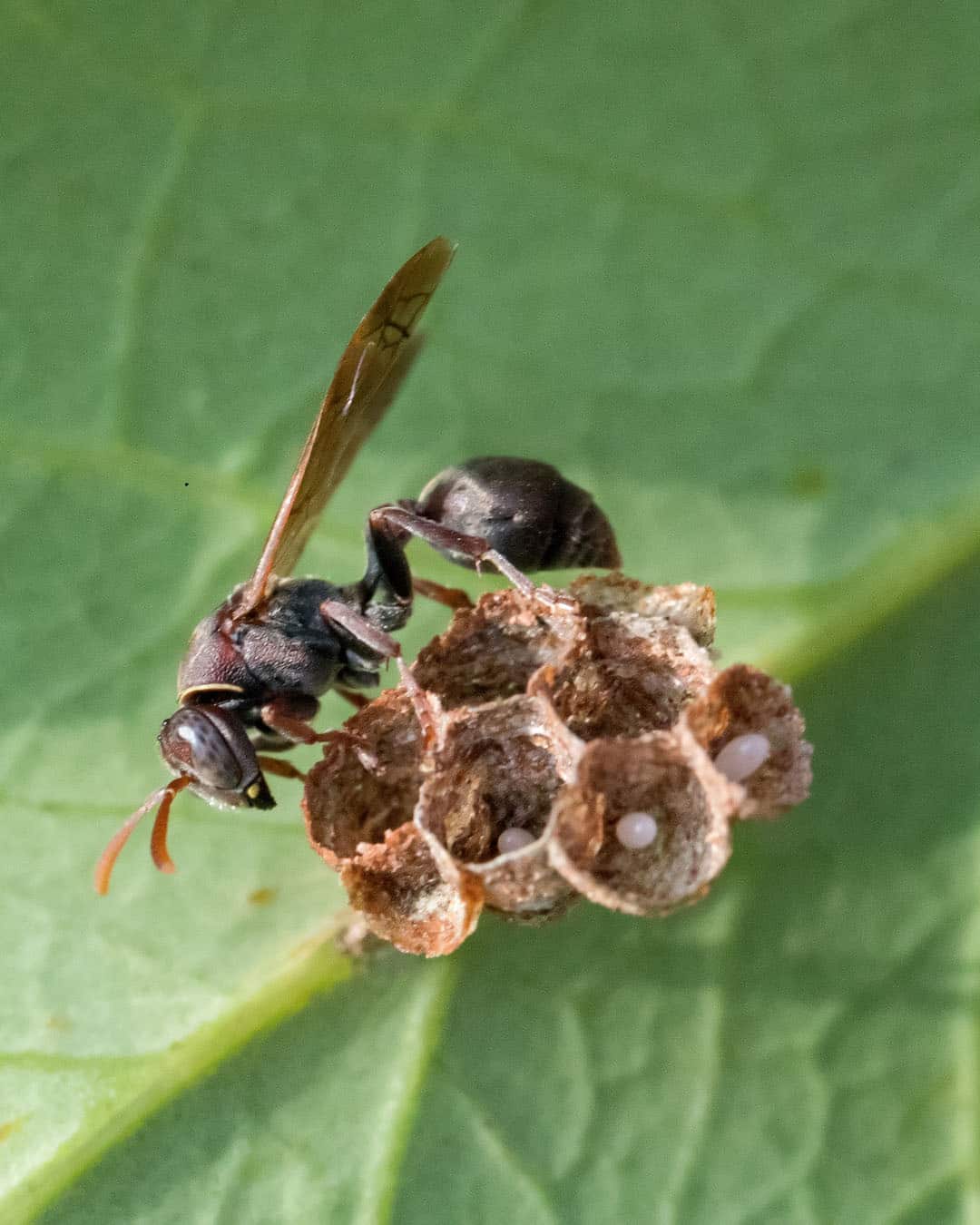Paper Wasp Facts & Information
Paper wasps are slender, long-legged insects known for their distinctive nests made of a papery material they create by chewing wood fibers mixed with saliva. While beneficial for pollination and controlling pest populations, their presence can be concerning due to their painful stings, especially when nests are located near high-traffic areas.

Vespidae
What You Need To Know About Paper Wasps
What do paper wasps look like?
Paper wasps are slender, elongated insects, typically measuring between 0.5 to 1 inch in length. They have a distinctive yellow or brown body with black markings and long, thin legs. Their bodies are smooth, and they possess a narrow waist that distinguishes them from other wasps.
What do paper wasps eat?
Paper wasps are omnivorous and primarily feed on nectar, fruits, and other sugary substances. They also hunt insects, particularly caterpillars and flies, to provide protein for their larvae. This combination of diets helps them thrive in various environments.
What sort of habitat do paper wasps live in?
Paper wasps build their nests in sheltered locations, often hanging from eaves, porch ceilings, and tree branches. Their nests are constructed from a papery material made by chewing wood fibers mixed with saliva, resulting in a unique, open-comb structure that resembles an upside-down umbrella.
How do paper wasps commonly behave?
Paper wasps are social insects that live in colonies, typically consisting of a few dozen to several hundred individuals. They are generally less aggressive than hornets and yellow jackets, often displaying a more docile demeanor. However, they will defend their nests if threatened, using their stings as a means of protection.
Did you know this about paper wasps?
Paper wasps are important pollinators, contributing to the health of gardens and ecosystems by transferring pollen as they feed on nectar. Additionally, their unique nests can be quite beautiful, with a layered appearance that can add an interesting element to outdoor spaces. Despite their sometimes intimidating presence, paper wasps play a valuable role in controlling pest populations and promoting biodiversity.
Understanding Paper Wasp Infestations
Understanding paper wasp infestations is crucial for effective management. These wasps typically have a yellow and black coloration and are less aggressive than other stinging insects, such as hornets or yellow jackets. They build open, umbrella-shaped nests that hang from eaves, trees, or shrubs. Paper wasps are primarily solitary hunters, feeding on nectar and insects, and can become territorial when their nests are disturbed.

How Hearts Handles Paper Wasp Treatment
Hearts Pest Management employs an integrated pest management approach to handle Paper Wasp infestations.
Paper Wasp Inspection
Paper Wasp Treatment
Paper Wasp Prevention
Educational Resources

Think You Might Have a Paper Wasp Infestation?
At Hearts Pest Control, we understand the challenges associated with Paper Wasp infestations and are here to provide professional solutions tailored to your needs. Flourishing in warm and humid climates, they are prevalent in many regions, including San Diego County, Orange County, and Los Angeles County.